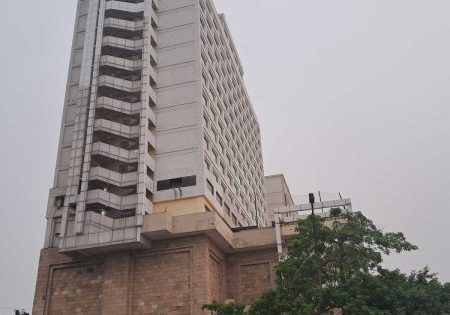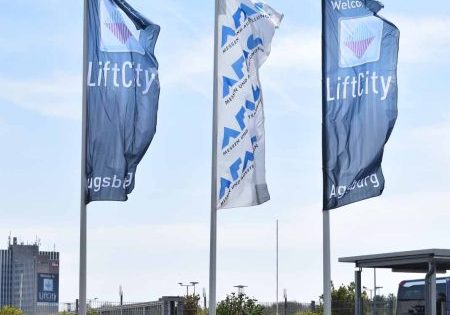Legal experts explain the real estate and vertical transportation (VT) implications of the resolution to appoint new developers and permit new financial institutions for slum rehabilitation projects in Maharashtra.
by Sushant Shetty, Arati Sawant and Clarissa D’Lima
A May 25, 2022 resolution issued by the Government of Maharashtra Housing Department (Resolution) allows financial institutions recognized by the Reserve Bank of India, the Securities and Exchange Board of India and the National Housing Bank to facilitate the completion of stalled slum rehabilitation projects. Such institutions are herein referred as Recognized Financial Institutions.
Background
The Maharashtra Slum Areas (Improvement, Clearance, and Redevelopment) Act, 1971 (Act) was enacted with a view to implement better provisions for the improvement and clearance of slum areas in the state of Maharashtra and their redevelopment. The Act empowers the Slum Rehabilitation Authority (SRA) appointed by the state government to impose timelines and other restrictions on slum rehabilitation projects for which it has approved the redevelopment plans. The subsequent failure of a developer to adhere to the timelines prescribed by the SRA may cause the SRA to take over the redevelopment of such projects from the defaulting developer. In exercise of the aforementioned statutory powers, the Resolution provides a two-pronged approach to propel progress of stalled projects by doing the following:
- The SRA may invite tenders from new developers to take up and complete the stalled slum rehabilitation projects.
- Recognized Financial Institutions can take up the completion of the stalled slum rehabilitation projects by undertaking the funding of such projects.
Waivers Granted
The Recognized Financial Institution will be recognized as a “co-developer” in the Letter of Intent (LoI) executed for the project. Recognized Financial Institutions will be given the following exemptions:
- Consent from slum dwellers. The prevalent development control regulations for Greater Mumbai stipulate a prerequisite of consent of 70% or more eligible hutment (hut encampment) dwellers for approval of the LoI submitted by the developer. Pursuant to the Resolution, Recognized Financial Institutions are exempted from seeking such consent.
- Transfer Fee. In 2021, the Mumbai Metropolitan Region SRA decided to recover a fee equivalent to 5% of the land cost of the Sale Plot Area (i.e., approximately 50% of the net scheme area calculated per annual statement of rates) from the new developer in the event of change of developer of a slum rehabilitation project. The Resolution provides an exemption to the Recognized Financial Institutions as co-developers in this regard.
The post-COVID-19 era has seen a slowdown in the real estate sector, especially in the residential segment, which has had a corresponding effect on ancillary industries, particularly VT.
Applicable Compliances and Penalties
Along with incentives provided in the form of the waivers, the Resolution also enforces certain compliances on the Recognized Financial Institutions/new developer which, among other things, include:
- Adherence to the prescribed timeline for completion of construction of the rehabilitation component
- Submission of certificate of financial capability (Annexure-III) of the Recognized Financial Institutions to execute the concerned projects
The Resolution also stipulates that the new developer shall be bound to make timely rent payments to the slum dwellers. Further, it provides that the SRA, the new developer/Recognized Financial Institution and the office bearers of the related housing societies shall take a joint decision on the payment of arrears of rent to the slum dwellers under the previously approved LoI. The same shall be mandatory for issuing a new LoI as per the Resolution.
The Resolution also imposes penalties on the new developer/Recognized Financial Institution ranging from 1% to 2% of the land cost of the Sale Plot Area for delay in achieving certain milestones within corresponding time limits which span up to three years.
In the event the Recognized Financial Institution/new developer breaches the terms and conditions of the Resolution and fails to complete the stalled slum rehabilitation project within the timelines prescribed by the SRA, they shall be penalized as per section 13(2) of the Act, and none of their new proposals/plans shall be accepted or entertained by the SRA.
The Takeaway
The Resolution provides an opportunity for developers wishing to undertake slum redevelopment projects and reap the benefits of incentives given for such projects as they enter the affordable housing segment. It also intends to give Recognized Financial Institutions a better standing in project-related decisions. However, the realization of the same will require additional guidelines on the powers exercisable by such Recognized Financial Institutions upon taking up the role and liabilities of a “co-developer.”
Also, the post-COVID-19 era has seen a slowdown in the real estate sector, especially in the residential segment, which has had a corresponding effect on ancillary industries, particularly vertical transportation (VT). This has led to a decrease in sales and has, in fact, brought about increased competition between manufacturers at lower margins, as well as payment delays from developers. Hopefully, the Resolution will rectify this situation and “lift” industry sentiments.
Given the compliances mentioned herein, charges that are payable to the concerned authority at every stage of approval and the compliance-related documentation that is required to be submitted from time to time to the concerned authority on the progress of the project, it is important that the Recognized Financial Institutions entering the field have a comprehensive understanding with the new developers appointed to complete stalled projects. The same can be captured in well-structured agreements between the parties and supplemented with thorough due diligence of the project.
About Fox Mandal
Sushant Shetty is a Partner, Arati Sawant is a Group Head and Clarissa D’Lima is an Associate at Fox Mandal, Solicitors & Advocates, one of India’s oldest and well-reputed full-service law firms having a pan-India presence with a particularly strong expertise in corporate, real estate, litigation, intellectual property (IP) and technology, media, telecom (TMT) practice.
Get more of Elevator World. Sign up for our free e-newsletter.









